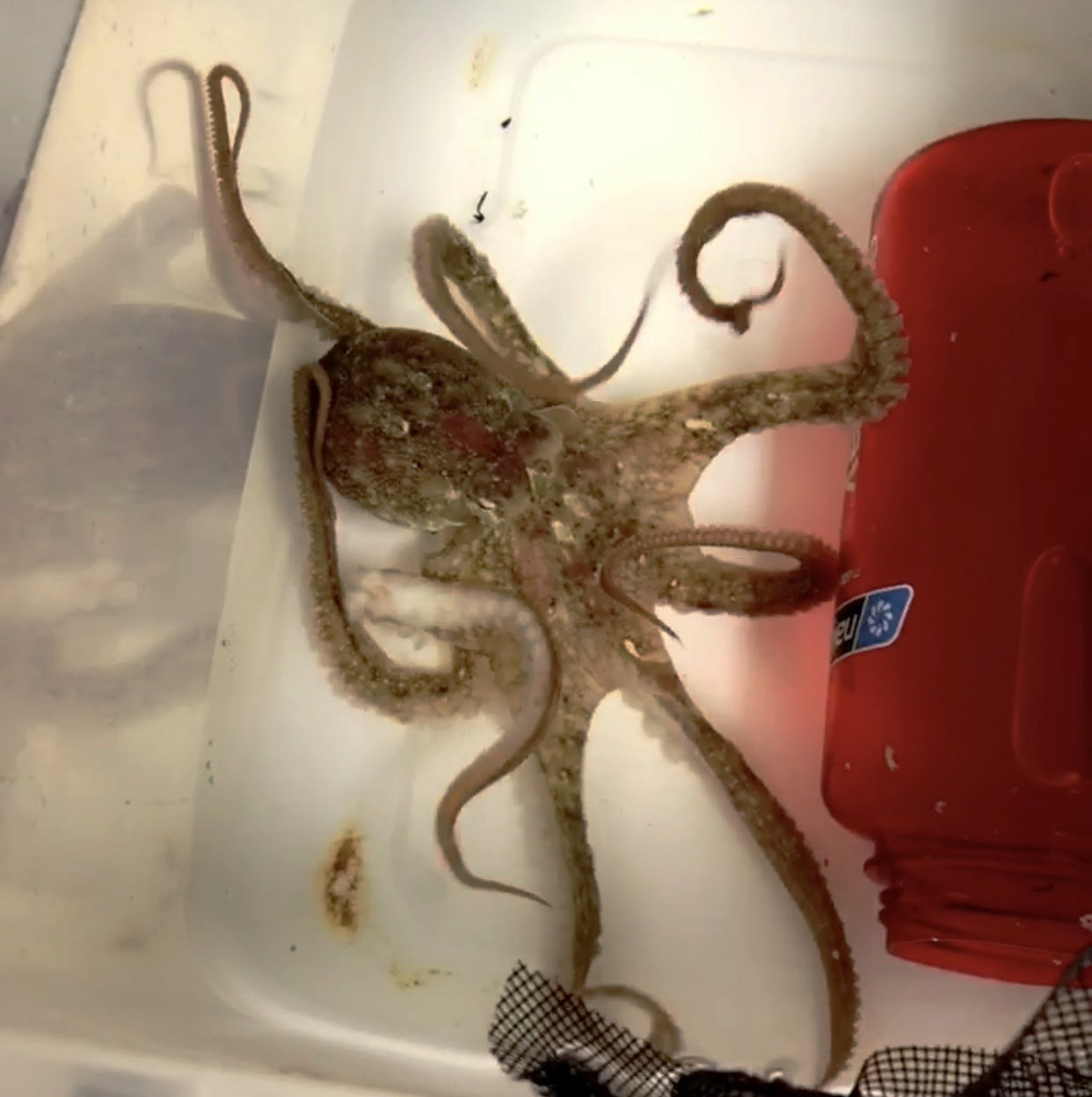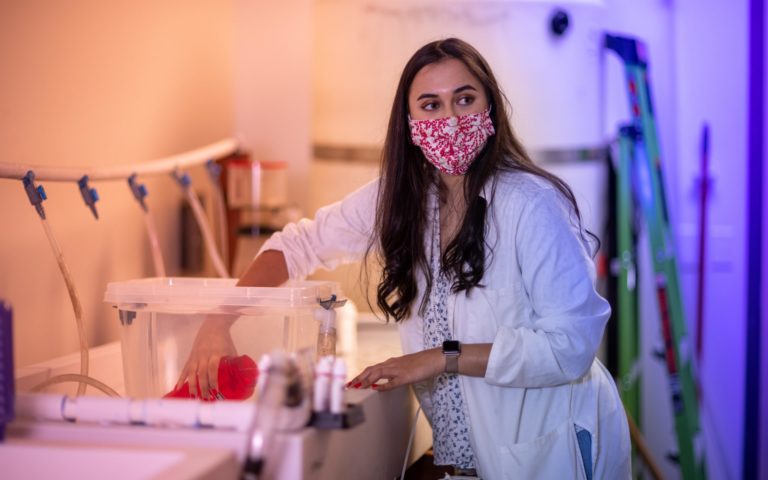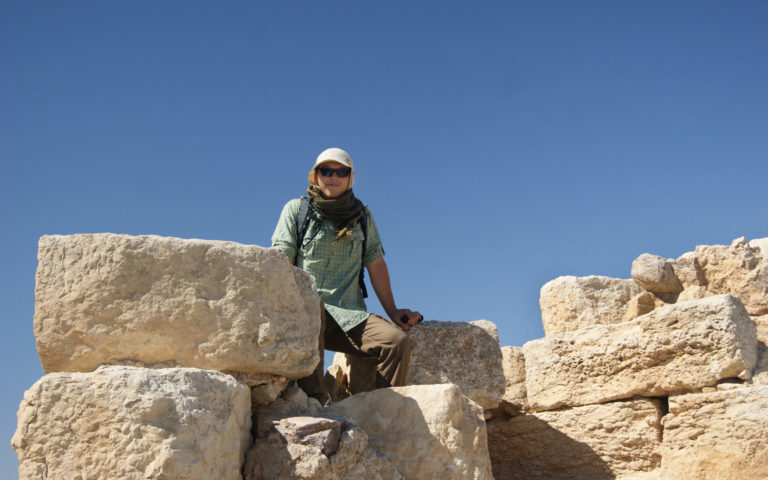by Natalie Romero
On the surface, Shannon Grewel’s research project is simple enough. Her work in Dr. Trueblood’s laboratory revolves around the collection of blood samples from octopuses in order to study the decrease in the pH levels of the ocean. But for Shannon, a senior majoring in Biomedical Sciences, it’s much more.
For biochemists, environmentalists, and students like Shannon, ocean acidification (or the decrease of pH in seawater) is a key indicator of how humans have affected their surroundings. According to the National Oceanic and Atmospheric Association, “in the 200-plus years since the industrial revolution began, the concentration of carbon dioxide (CO2) in the atmosphere has increased… During this time, the pH of surface ocean waters has fallen by 0.1 pH units. This change represents approximately a 30 percent increase in acidity.”
Since her freshman year Shannon has worked closely with Octopus rubescens, also known as the East Pacific red octopus or the ruby octopus, a common species that is directly affected by ocean acidification. “We believe that as the pH continues to drop, oxygen binding will be impacted. This would be detrimental,” she explains.

Octos survive thanks to hemocyanin—a respiratory pigment similar to hemoglobin that transports oxygen through an octo’s body when they use their gills to extract oxygen from saltwater. But Shannon’s research shows how lower pH levels cause hemocyanin to not bind oxygen as well; lower pH means lower oxygen binding, which could spell disaster for octos.
Though the subject matter is serious, Shannon found that working with octos was one of her favorite things to do on campus. While these intelligent animals can be stubborn and high maintenance, she fell in love with the fun of figuring them out. “Every octo has their own personality,” she reflects.
Shannon also found her research to be eye-opening on a personal level. “[It] made me think about reducing my carbon footprint and doing whatever I can to help the environment,” she says. Academically and professionally, the project played a significant role in her La Sierra experience and over the years she has had the opportunity to present her findings during Biology Colloquium, the Inclinations undergraduate conference, and chapel. “My lab experience has taught me various skills that I will be able to use for the rest of my life.”





